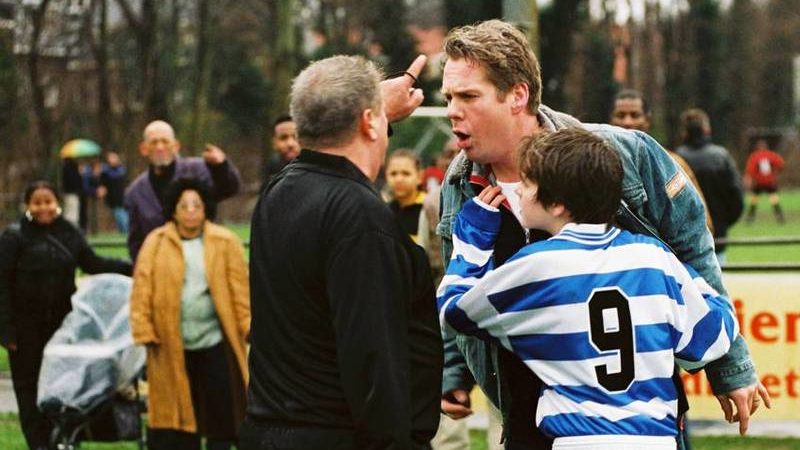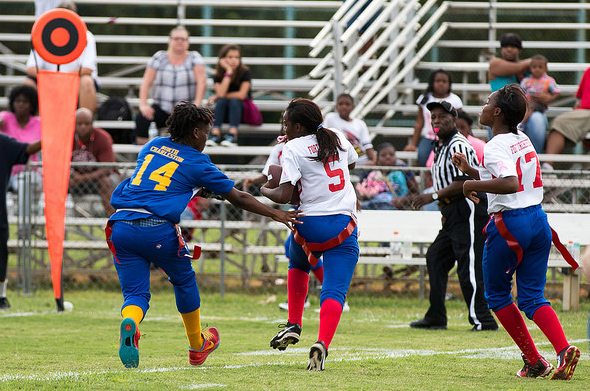Promote sportsmanship — don’t just pay it lip service
In the past month, I’ve read about a football coach being ejected from a game and his team refusing to take the field again. I’ve read about hazing incidents that make your skin crawl. I’ve read about deplorable fan behavior that leaves you wondering if people attend high school games solely to berate opposing players and scream at officials.
While there is no way to quantify it, sportsmanship appears at an all-time low in athletics … and one organization is doing something about it. The 13-league Central Coast Section (CCS) of the California Interscholastic Federation (CIF) has placed sportsmanship at the forefront of the minds of athletic directors, principals, athletes, coaches, parents and fans by taking the sportsmanship contract required by the CIF and constantly adding to it.
The contract has evolved in an attempt to ensure attention to sportsmanship and also to keep it new and different, so athletic directors and principals aren’t just signing the same piece of paper every year without thinking, says Nancy Lazenby Blaser, the commissioner of the CCS. Sportsmanship is a constant struggle. It cannot be something you just address, fix and move on. It has to be constantly and consistently addressed.Years ago, the CIF required all California schools to have a principal and athletic director sign a sportsmanship agreement. The CCS added its own spin by making those participants take action to explain how they present the idea of sportsmanship to their athletes, coaches and student body.
Due in the CCS offices no later than September 15 (otherwise, schools face a fine), the expanded CCS sportsmanship agreement dedicates its first and second questions to how the CIFs Pursuing Victory With Honor (a detailed, 16-point list of principles) is presented to the school and to the athletic department. This is where schools in the CCS have become creative.
At San Benito High School in Hollister, Calif., the school, nicknamed the Balers, has an official Baler Code, which is a code of conduct that the school has hanging on a banner in its gym as well as printed on cards, which are handed out to attendees at athletic events.
The Baler Code requires everyone involved in athletics at San Benito to conduct themselves in a proper way and treats the game with respect, says CCS assistant commissioner Steve Filios.
He adds that some schools have instituted issuing yellow cards to unruly fans at soccer games. The yellow card, typically presented by the athletic director or supervisor at the game, addresses the idea that being a fan is a privilege and not a license to verbally assault players, coaches or officials. The card goes on to read, Its not your game, it’s ours, the players and athletes that are competing. We hope spectators will watch, enjoy, encourage and be proud of us, win or lose.
Other schools have a pregame sportsmanship statement read to the fans by a member of both competing teams. Its a statement about treating the game with respect so that we have a safe and appropriate environment for everyone, says Filios. He adds that having athletes read the statement is more effective than simply having the words come from the public-address announcer.
Education is having a positive influence in the CCS. As other schools outside the section are witnessing an increase in incidents, teams within the CCS are holding steady.
Our ejections from games have been almost constant for the past three years. Sportsmanship is not decreasing here, Lazenby Blaser says.
And, maybe that is what sportsmanship comes down to simply addressing the topic consistently and making it a part of your program. Think about it how many readers truly discuss sportsmanship with their athletes, coaches and fans beyond a simple mention during a preseason meeting?
Dont pay it lip service. Your athletes deserve better. Be a teacher rather than someone who only knows how to dissect Xs and Os. When your athletes eventually graduate and become citizens, you want them armed with the experience to make them role models for future generations. The CCS in California requires schools to address sportsmanship … it’s time you do as well.





